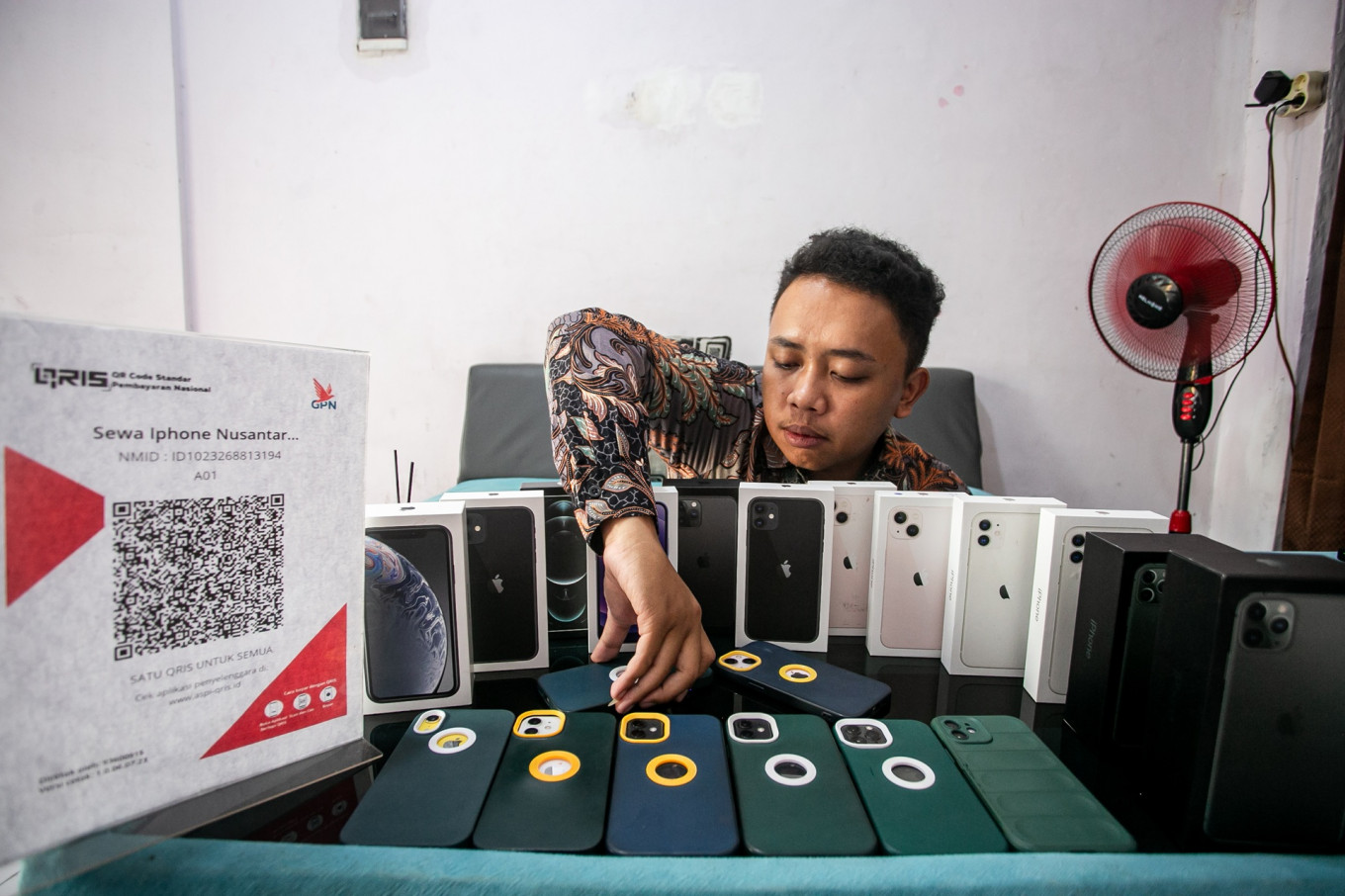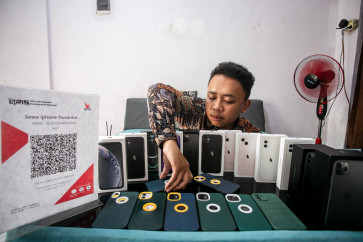Popular Reads
Top Results
Can't find what you're looking for?
View all search resultsPopular Reads
Top Results
Can't find what you're looking for?
View all search resultsGovt pushes for eSIM adoption through new regulation
Compared to their conventional counterparts, embedded SIM (eSIM) cards are deemed more secure as they can prevent phone number-based hacking and identity theft, according to Communications and Digital Minister Meutya Hafid.
Change text size
Gift Premium Articles
to Anyone
T
he government is encouraging Indonesian smartphone users to use embedded SIM (eSIM) cards, which are deemed more secure against hacking and some other cyberattacks compared to their conventional counterparts.
Communications and Digital Minister Meutya Hafid signed a ministerial regulation on eSIM on Friday as part of an effort to prevent data leaks and identity theft through the misuse of telephone numbers.
“For now, the migration [into eSIM] is not yet mandatory. However, we’re urging people using compatible devices to shift immediately,” the minister said in a statement issued on Friday.
In Indonesia, eSIM was first introduced by private telecommunication service provider Smartfren. More companies followed suit in the coming years, including Indosat in December 2022, XL Axiata and state-owned telco Telkomsel.
But the technology is mostly only compatible with either high-end or flagship gadgets released after 2020.
Read also: Local telcos rush to eSIM despite risks
Unlike the conventional SIM that uses a physical chip card, eSIM uses a module permanently planted inside a smartphone which is capable of storing multiple phone numbers in a single device, although only one can be active at a time.


















